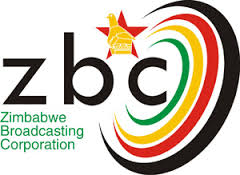Story by Oleen Ndori, Foreign Desk Editor
THE African Continental Free Trade Area (AfCFTA) has been adopted as an effective tool to ensure the attainment of a politically and economically free Africa.
This comes as the continent celebrates Africa Month this May.
Revolutionary icons in the mould of Kwame Nkrumah of Ghana, Mwalimu Julius Nyerere of Tanzania, Modibo Keita of Mali, Ben Bella of Algeria, Jomo Kenyatta of Kenya and Hastings Kamuzi Banda of Malawi 60 years ago reorganised African unity to formulate the Organisation of African Unity (OAU) now the African Union (AU).
They worked tirelessly until all the colonised states attained political independence and the vision has now turned to pushing for economic independence driven by intra-continental trade among the peoples and countries of Africa.
According to the Dean of the African Diplomats in Zimbabwe and Rwandese Ambassador His Excellency James Musoni, the main objective is to accelerate intra-African trade by up to 52% and boost Africa’s trading position in the global market by strengthening the continent’s common voice and policy space in global trade negotiations.
“Our forefathers stood up and fought and won the independence of Africa and now we are looking at how to promote economic independence to promote intracontinental trade and we need to reformulate and it is inward looking for growth,” said His Excellency Ambassador Musoni.
From political freedom to economic independence, the continent has over the years sought ways that embrace diversity among its people and culture to create a united continent and economic front that leverages political independence for the economic growth of Africa.
In 2013, the African Union adopted Agenda 2063 which captures the pan-African drive for unity, self-determination, and collective prosperity where at the centre lies the African Continental Free Trade Area (AfCFTA).
Permanent Secretary for the Ministry of Foreign Affairs and International Trade Ambassador James Manzou believes the economic blueprint will create a single market for goods and services facilitated by the movement of persons to deepen the economic integration of the African continent.
“Economic integration responds not only to an aspiration born of pan-Africanism but also to a practical need linked to the economic viability of the continent and I think once in full force it will develop Africa,” said the Permanent Secretary in the Ministry of Foreign Affairs and International Trade, Ambassador James Manzou.
Africa Day which will be celebrated on the 25th of this month presents an opportunity to connect 1.3 billion people across 55 countries with a combined gross domestic product (GDP) of US$3.4 trillion under the continental free trade area and the potential to lift 30 million people out of extreme poverty.




